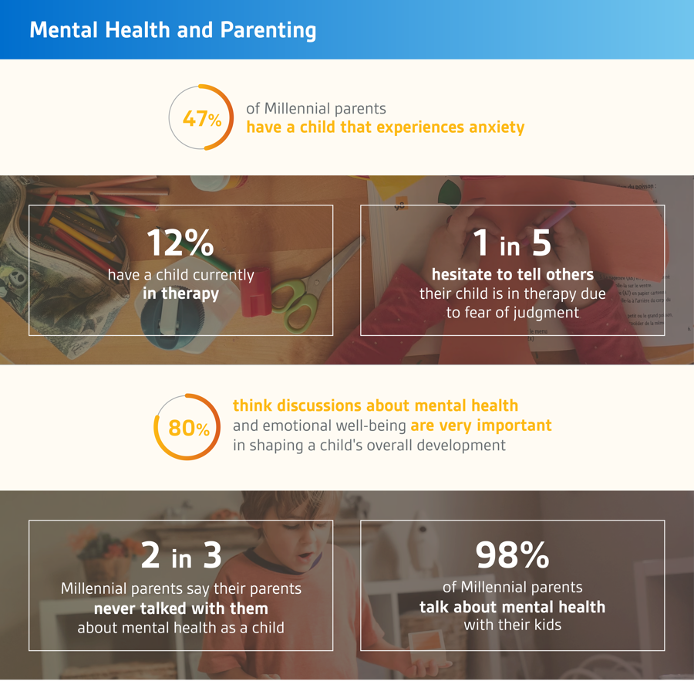Parenting with Empathy: How to Build Stronger Bonds with Your Kids
- Allen Bauman
- Jul 17
- 4 min read

Parenting is about so much more than setting rules or correcting behavior. At its heart, it’s about connection, understanding your child’s world, and showing up for them in ways that help them feel safe, valued, and supported. Practicing empathy as a parent makes those connections stronger and teaches your child how to handle big feelings, tough situations, and relationships with care.
Meet Them Where They Are
The first step to parenting with empathy is recognizing that your child isn’t a small adult. They’re growing, learning, and figuring out how to navigate a world that, to them, can be confusing and unpredictable.
As adults, we tend to brush off small setbacks, a missed snack, or a toy left behind. But for a young child, those moments can feel enormous. A toddler melting down over a lost balloon might seem dramatic from your point of view, but to them, it’s a real loss. Their emotions are as genuine as yours, even if the situations look different.
Keeping this in mind can help you respond with patience. Their reactions aren’t about defiance or overreacting; they’re about managing feelings they don’t have the tools for yet.
Be Fully Present When They Speak
Empathy shows up in the little moments. When your child is upset, excited, or frustrated, take a pause and give them your full attention. Active listening isn’t complicated — it’s about being present. Make eye contact when it feels right, kneel down to their level, and show them you’re truly hearing what they have to say.
Your attention is more powerful than you might realize. When supporting young children, being fully engaged helps them stay focused, feel supported, and build confidence. Sitting beside them during learning activities, alternating more enjoyable tasks with tougher ones, and turning reading time into a cozy, connected moment can ease frustration and make learning feel rewarding. Positive attention motivates kids in big ways and shapes how they interact with others (Child Mind Institute, 2024).
And it’s not just an individual parenting choice — it’s becoming the norm. According to Lurie Children’s (2024), 74% of millennial parents are embracing gentle parenting, focusing on empathy, communication, and emotional awareness. Even more, 98% of parents actively talk about mental health with their children.

One of the simplest and most effective ways to strengthen your connection is by reflecting their feelings back to them. If your child says, “I’m mad because no one would play with me,” responding with something like, “That sounds really tough. I’m sorry you felt left out,” can go a long way in helping them feel heard and supported. And remember, you don’t always have to fix the problem. Sometimes, what a child needs most is for someone to sit beside them and share the moment.
Keep Judgment Out of It
Kids are constantly testing limits and figuring out how emotions work. As a parent, it’s tempting to dismiss their feelings or tell them to “get over it.” But it’s helpful to remember what it felt like to be their age.
Think back to when you were five, eight, or twelve. Didn’t it feel like the world might end when a friend left you out or you lost your favorite toy? Even if those problems seem small now, they mattered back then.
Creating a home where feelings can be expressed without fear of being teased or scolded makes it easier for your child to open up, not just now, but as they grow.
Acknowledge Their Emotions
This doesn’t mean letting your child avoid consequences, but it does mean taking a moment to recognize how they’re feeling before moving on to discipline or problem-solving.
If your child is upset because they lost screen time after arguing with a sibling, you can still hold that boundary while saying something like, “I know you’re frustrated. It’s hard to miss out on things you enjoy.”
By doing this, you’re teaching them that their feelings are valid, while also showing that actions have outcomes. That balance is where trust and emotional safety are built.
Why It Matters
Empathetic parenting isn’t about being soft or giving in. It’s about understanding what your child is experiencing, responding with kindness, and guiding them through it. When you make space for their emotions and help them name and handle those feelings, you’re giving them tools they’ll use for the rest of their lives.
Small, consistent moments of empathy can make a lasting impact. Listening without interrupting, offering a hug after a tough day, or simply acknowledging that something felt unfair all show your child they’re valued and understood.
These moments remind your child they can count on you, no matter what, and that their emotions matter. That bond shapes confident, compassionate adults who treat others with the same care they received.
Recommended Tools and Guides for Parents
If you’re interested in learning more about parenting with empathy, there are some wonderful resources available to help. Zero To Three offers practical tools and research-backed guidance for nurturing strong emotional connections in early childhood.
At Metta Vita Health, we believe that well-being starts at home. By prioritizing empathy in your parenting, you’re supporting not just your child’s growth but your own path to a healthier, more balanced life.
References
Ann & Robert H. Lurie Children’s Hospital of Chicago. (2024, January 11). Millennial Parenting Statistics: Navigating Modern Parenthood in Today’s World https://www.luriechildrens.org/en/blog/millennial-parenting-statistics/
Child Mind Institute. (2024, December 9). K-2 tips for supporting learning at home. https://childmind.org/article/k-2-tips-for-supporting-learning-at-home/
Zero To Three. (2025). Nurturing Potential With Evidence-Based Approaches




Comments